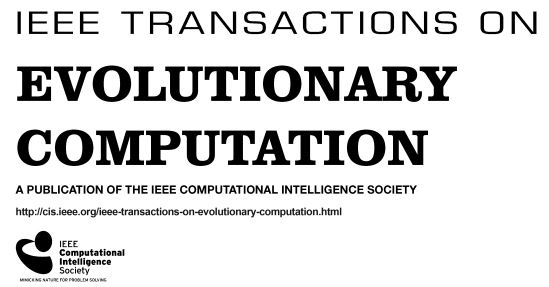Protein Design by Directed Evolution Guided by Large Language Models
IF 11.7
1区 计算机科学
Q1 COMPUTER SCIENCE, ARTIFICIAL INTELLIGENCE
引用次数: 0
Abstract
Directed evolution, a strategy for protein engineering, optimizes protein properties (i.e., fitness) by a rigorous and resource-intensive process of screening or selecting among a vast range of mutations. By conducting an in-silico screening of sequence properties, machine learning-guided directed evolution (MLDE) can expedite the optimization process and alleviate the experimental workload. In this work, we propose a general MLDE framework in which we apply recent advancements of deep learning in protein representation learning and protein property prediction to accelerate the searching and optimization processes. In particular, we introduce an optimization pipeline that utilizes the large language models (LLMs) to pinpoint the mutation hotspots in the sequence and then suggest replacements to improve the overall fitness. Our experiments have shown the superior efficiency and efficacy of our proposed framework in the conditional protein generation, in comparison with the other state-of-the-art baseline algorithms. We expect this work will shed a new light on not only protein engineering but also on solving the combinatorial problems using the data-driven methods.大语言模型指导下的定向进化蛋白质设计
定向进化是蛋白质工程的一种策略,通过严格和资源密集型的筛选或选择大量突变的过程来优化蛋白质特性(即适应性)。通过对序列特性进行计算机筛选,机器学习引导的定向进化(MLDE)可以加快优化过程并减轻实验工作量。在这项工作中,我们提出了一个通用的MLDE框架,在该框架中,我们将深度学习的最新进展应用于蛋白质表示学习和蛋白质性质预测,以加速搜索和优化过程。特别是,我们引入了一个优化管道,该管道利用大语言模型(llm)来确定序列中的突变热点,然后建议替换以提高整体适应度。我们的实验表明,与其他最先进的基线算法相比,我们提出的框架在条件蛋白质生成中具有优越的效率和功效。我们期望这项工作不仅会为蛋白质工程提供新的亮点,而且会为使用数据驱动的方法解决组合问题提供新的亮点。
本文章由计算机程序翻译,如有差异,请以英文原文为准。
求助全文
约1分钟内获得全文
求助全文
来源期刊

IEEE Transactions on Evolutionary Computation
工程技术-计算机:理论方法
CiteScore
21.90
自引率
9.80%
发文量
196
审稿时长
3.6 months
期刊介绍:
The IEEE Transactions on Evolutionary Computation is published by the IEEE Computational Intelligence Society on behalf of 13 societies: Circuits and Systems; Computer; Control Systems; Engineering in Medicine and Biology; Industrial Electronics; Industry Applications; Lasers and Electro-Optics; Oceanic Engineering; Power Engineering; Robotics and Automation; Signal Processing; Social Implications of Technology; and Systems, Man, and Cybernetics. The journal publishes original papers in evolutionary computation and related areas such as nature-inspired algorithms, population-based methods, optimization, and hybrid systems. It welcomes both purely theoretical papers and application papers that provide general insights into these areas of computation.
 求助内容:
求助内容: 应助结果提醒方式:
应助结果提醒方式:


